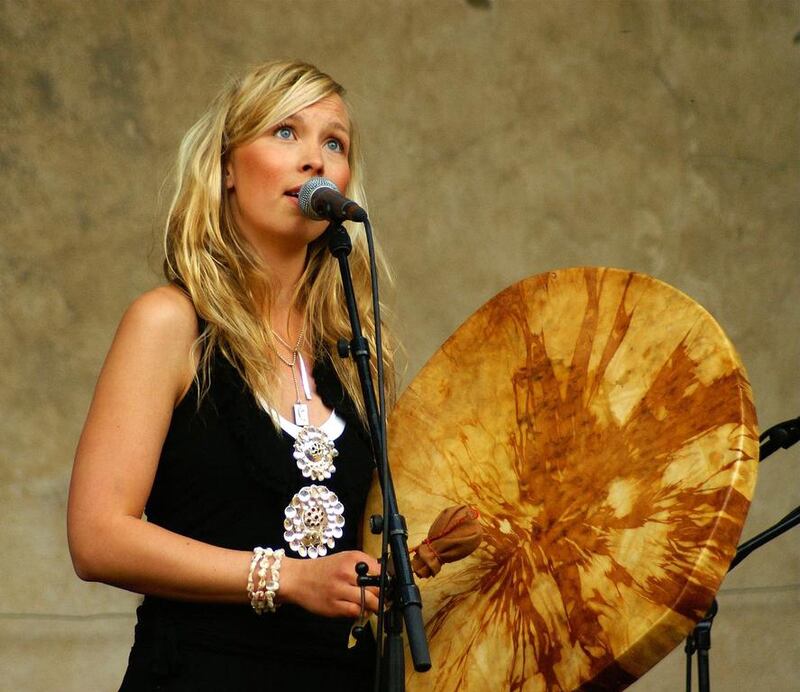It’s easy to assume that music coming from Sweden is upbeat, slightly predictable fare. From former chart-conquering groups, Abba, Roxette and Ace of Base, to current influential producers, Max Martin and Avicii, a large swathe of modern pop-hits often bears the hallmark of a Swede.
As part of this year’s book fair, however, a new and more intriguing sound is coming our way from northern Europe. Performing on Sunday, the Swedish singer Sofia Jannok is set to captivate crowds with her arresting blend of compositions, mixing pop sensibilities with lyrics sung in the language of the Sami, Sweden’s indigenous people.
With the history of the Sami people going as far back as the 11th century, with communities stretching across the mountainous regions of Scandinavia and north-western Russia, don’t come in expecting a traditional Sami music performance using native instruments such as the fadno (a reed pipe) or the ceremonial Sami drum.
Throughout her three albums, Jannok’s sonic influences are modern with atmospheric and lush keyboard sounds recalling the likes of artists Sigur Rós and Björk.
“I can never say that this is Sami music because it is not,” she says. “I would like to think of it as pop music sung by a Sami person.”
It is an important distinction. Jannok’s latest album, last year’s Áphi (As Wide as Oceans), is a collection of tuneful songs that attempts to capture the vastness of remote locations. With the 14 tracks rarely crossing the four-minute mark, none of the songs are tightly coiled but instead languidly unfurl.
Jannok says the aim is to register an emotion rather than to lodge her tunes in your head.
“I wanted an image of wide open spaces,” she says. “Although the title talks of oceans, what I was trying to do is capture the vastness of the Tundra region that continues to influence me. I wanted to speak of the loneliness that one perhaps feels when they are in such vast spaces.”
It is this connection with her native land that is perhaps the most distinguishing Sami feature of Jannok’s music. In the brooding Psalm, she traces a hazardous mountainous voyage where she pleads: “Follow my tracks on the barren Tundra/Save me from the cold/Be near when I need somebody to be close.”
Jannok will explore this relationship between the Sami people and the land as part of her discussion in the panel session, titled Nomadic Cultures from the Snow and Sand, on Monday. Despite the completely different terrains, Jannok explains the Sami people and the Gulf Bedouins face similar challenges.
“What is fascinating is that when I speak to indigenous people from around the world, I see a lot of similarities. We struggle with the same things such as being understood, that we want to live our own way and we generally want to exist the way we are and be accepted for that.”
Jannok is looking forward to spending time with Bedouin in the desert. Despite the language difference, she says there is a common bond shared by all indigenous people. “It is something about how I know this person likes to live close to nature and how a particular society perhaps didn’t treat this particular person or their ancestors very well,” she explains.
“We feel a sense of compassion to each other.”
• Sofia Jannok will perform on Sunday at 7.30pm on the Discussion Sofa, and be part of a panel discussion, Nomadic Cultures from the Snow and Sand, at The Tent on Monday at 7.30pm
sasaeed@thenational.ae






